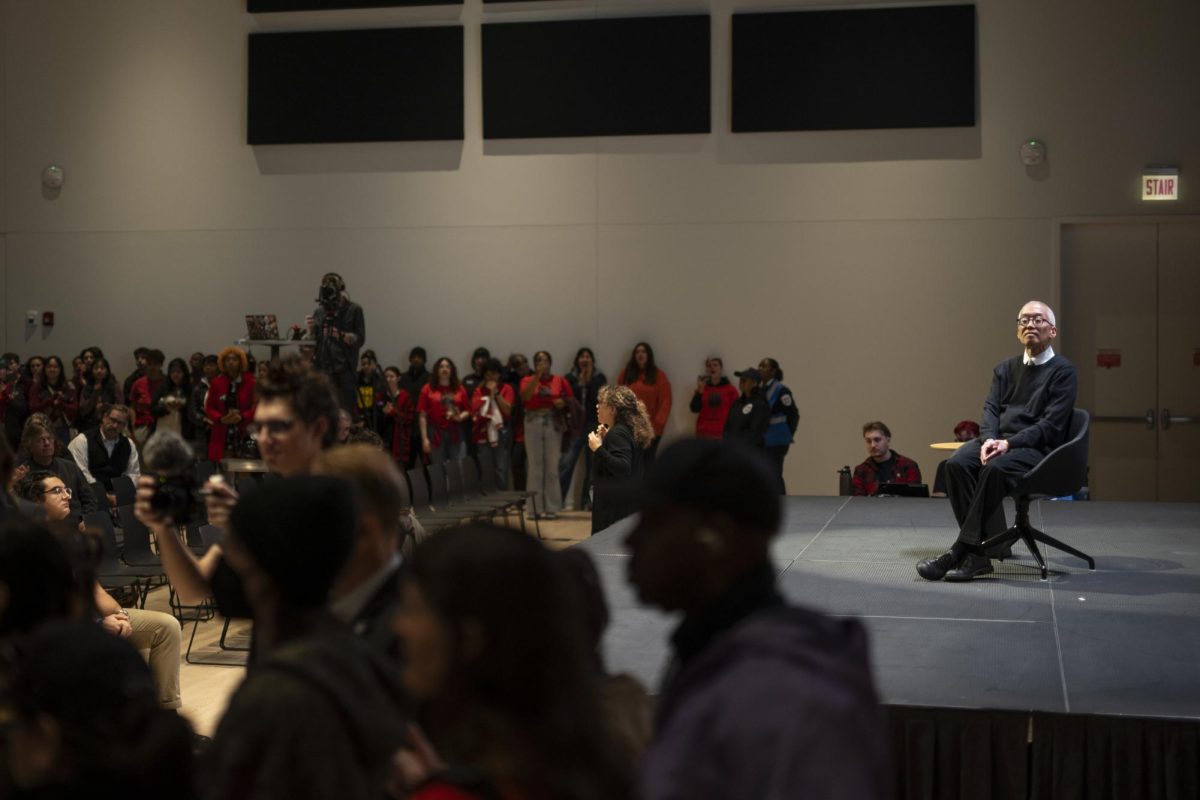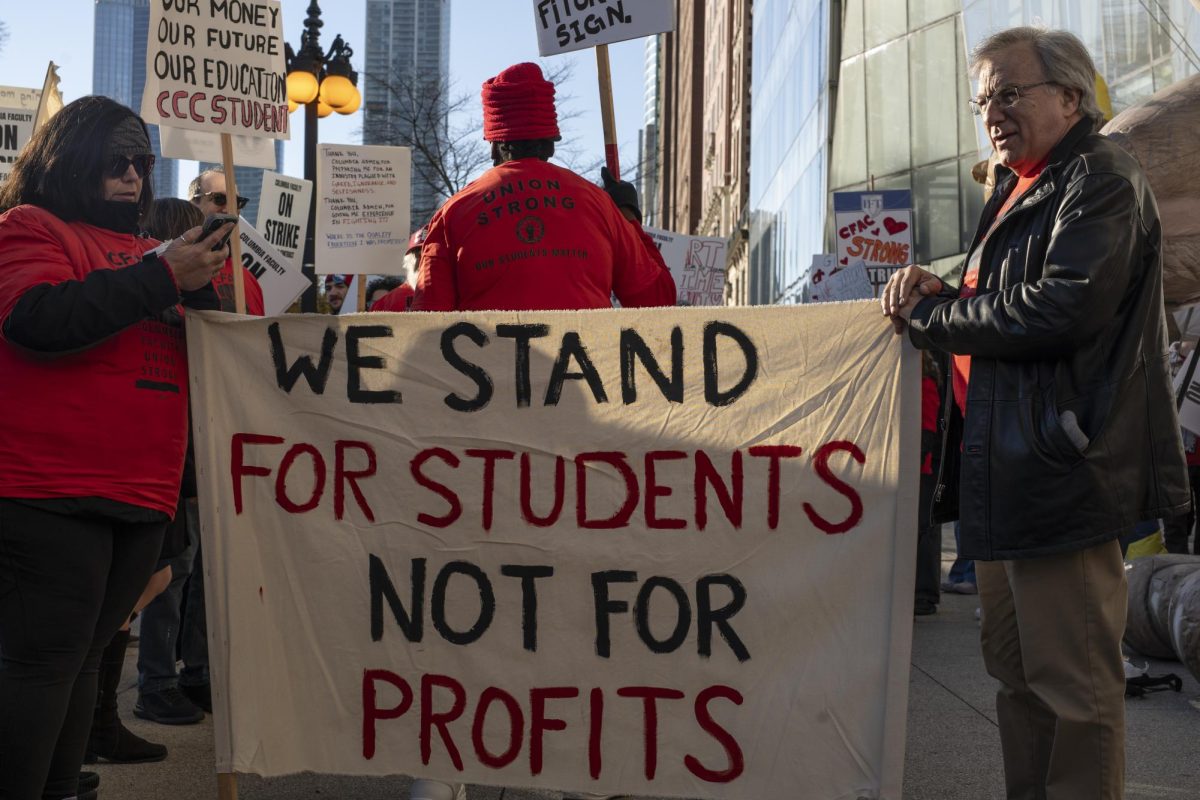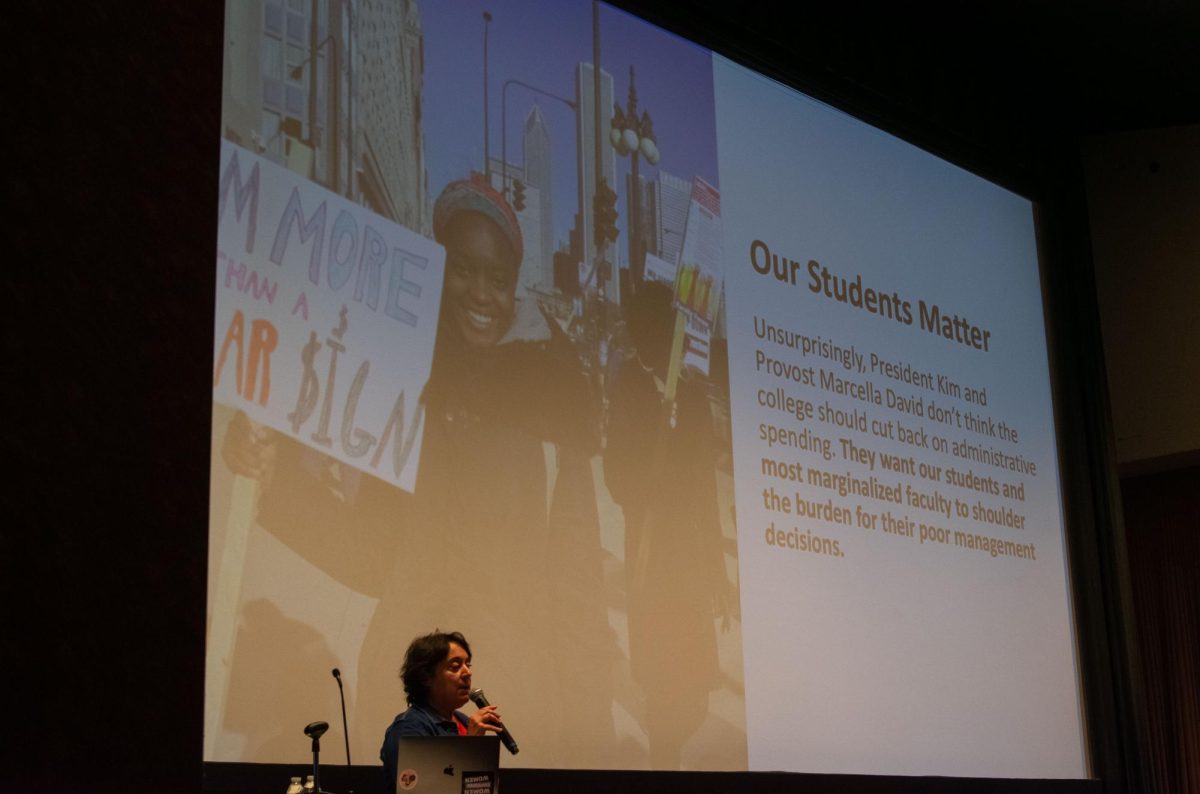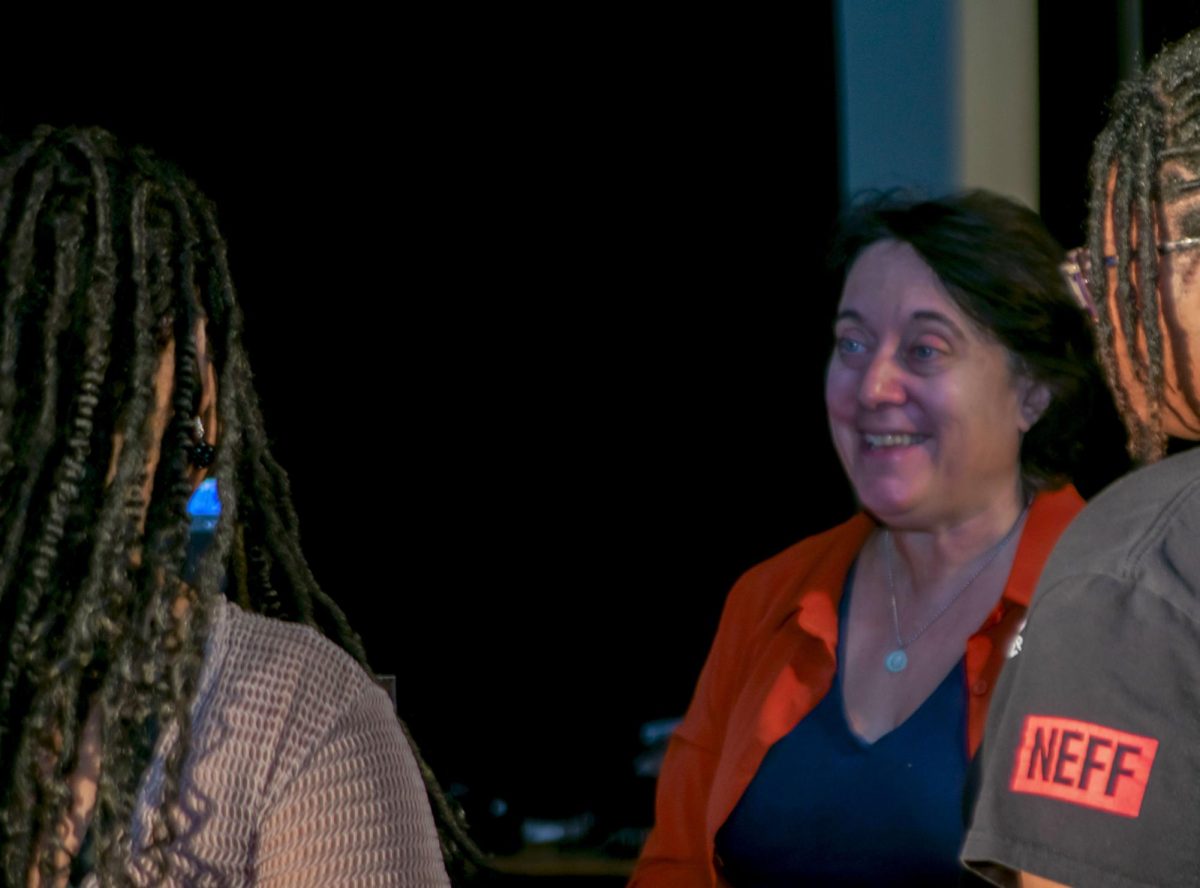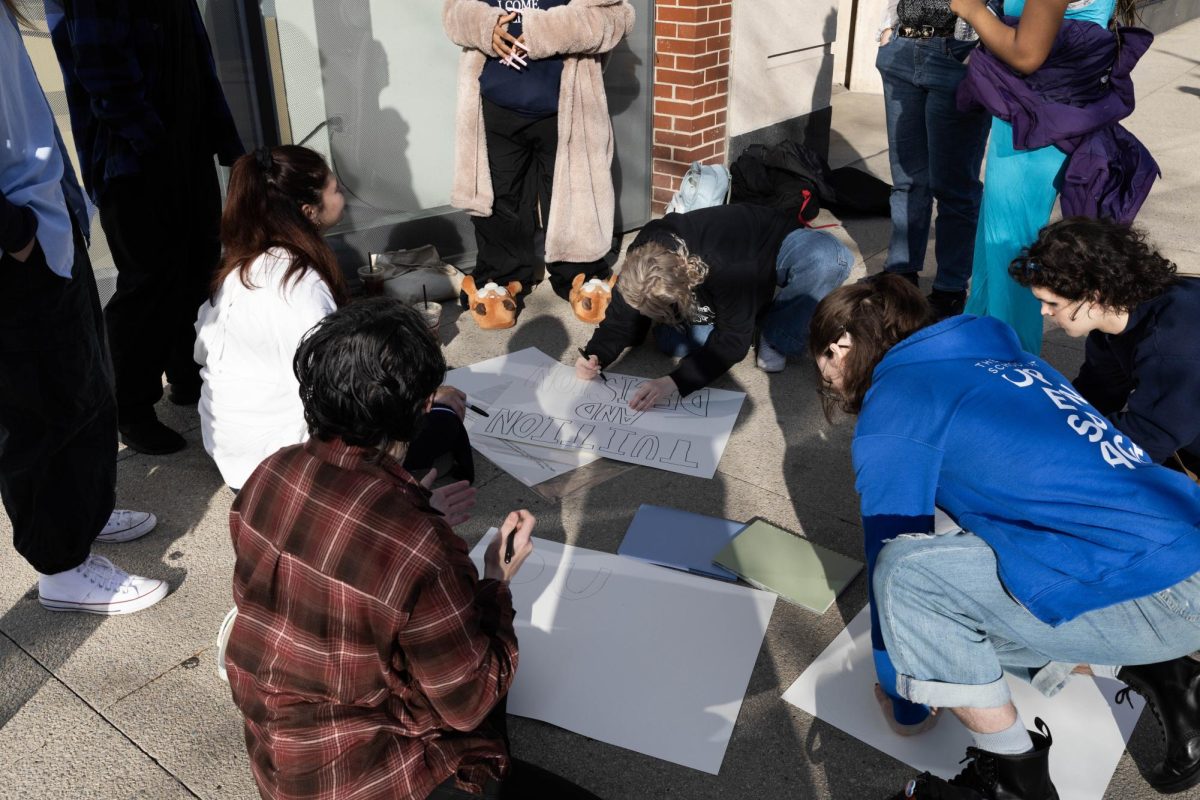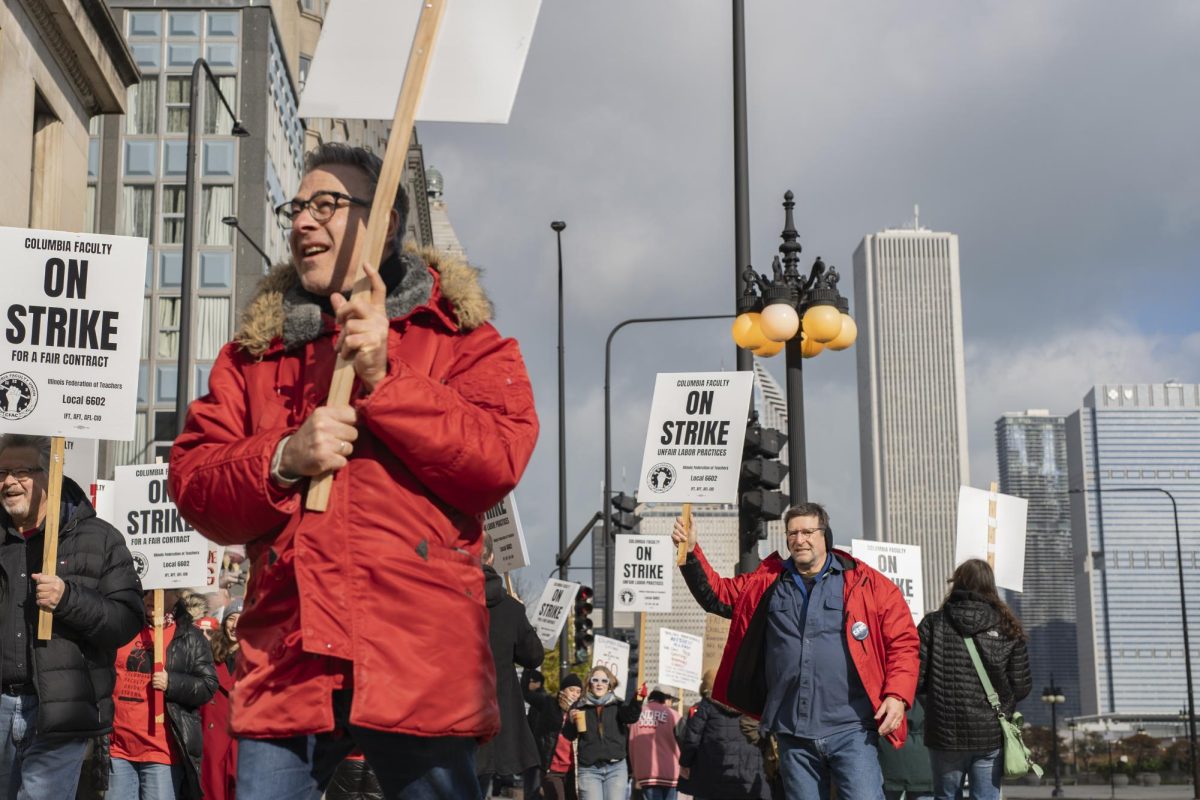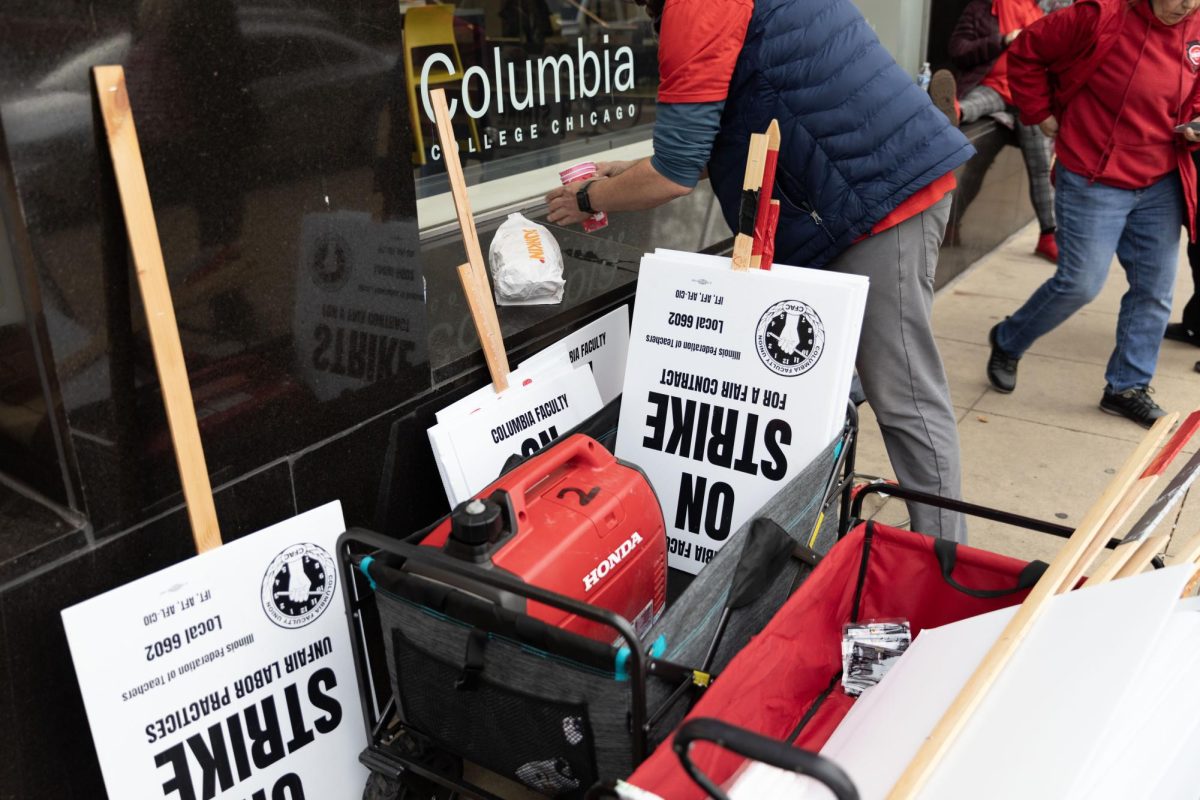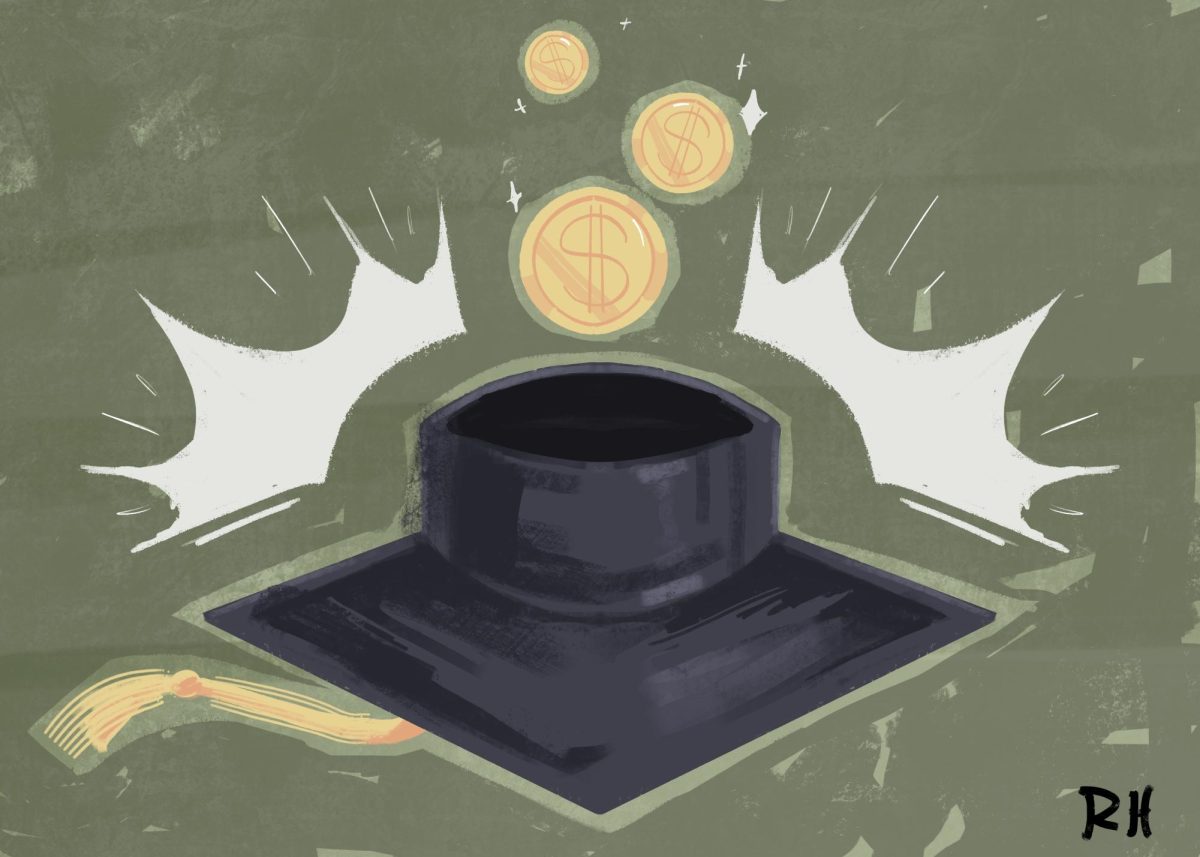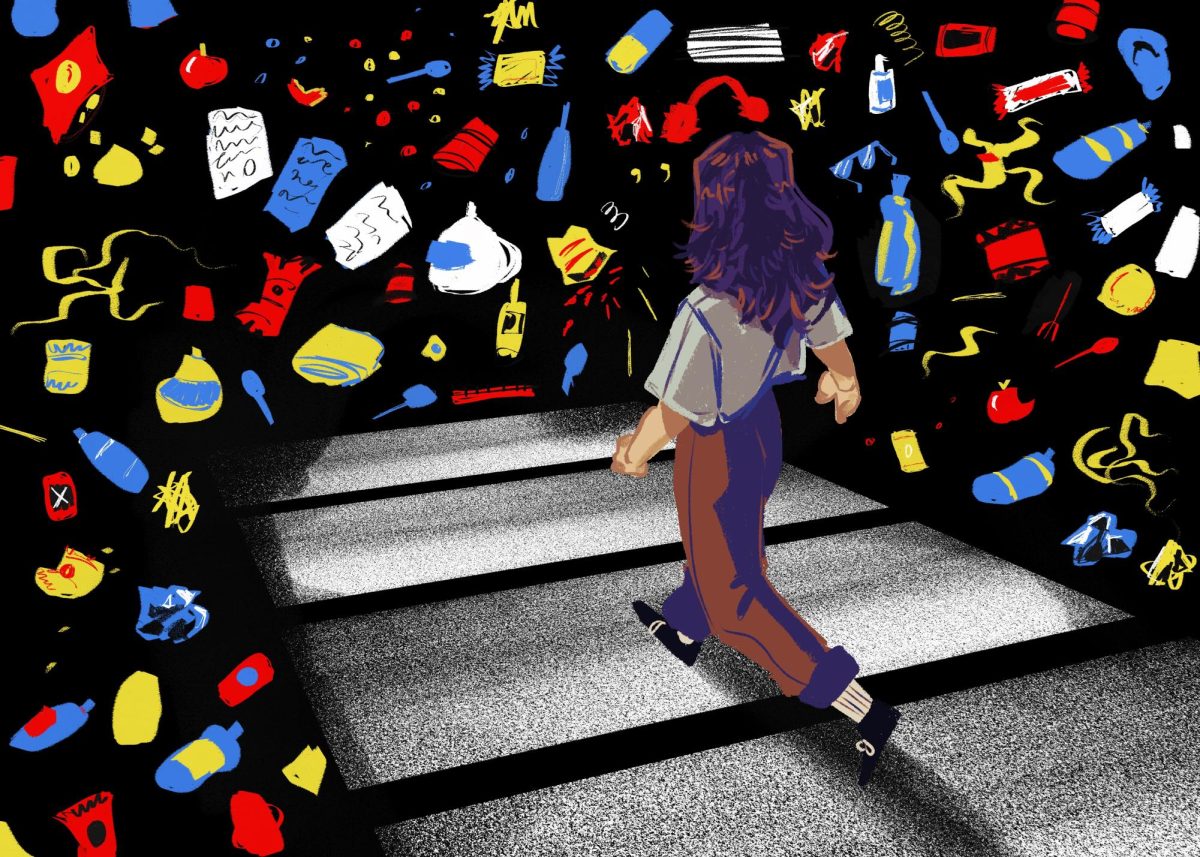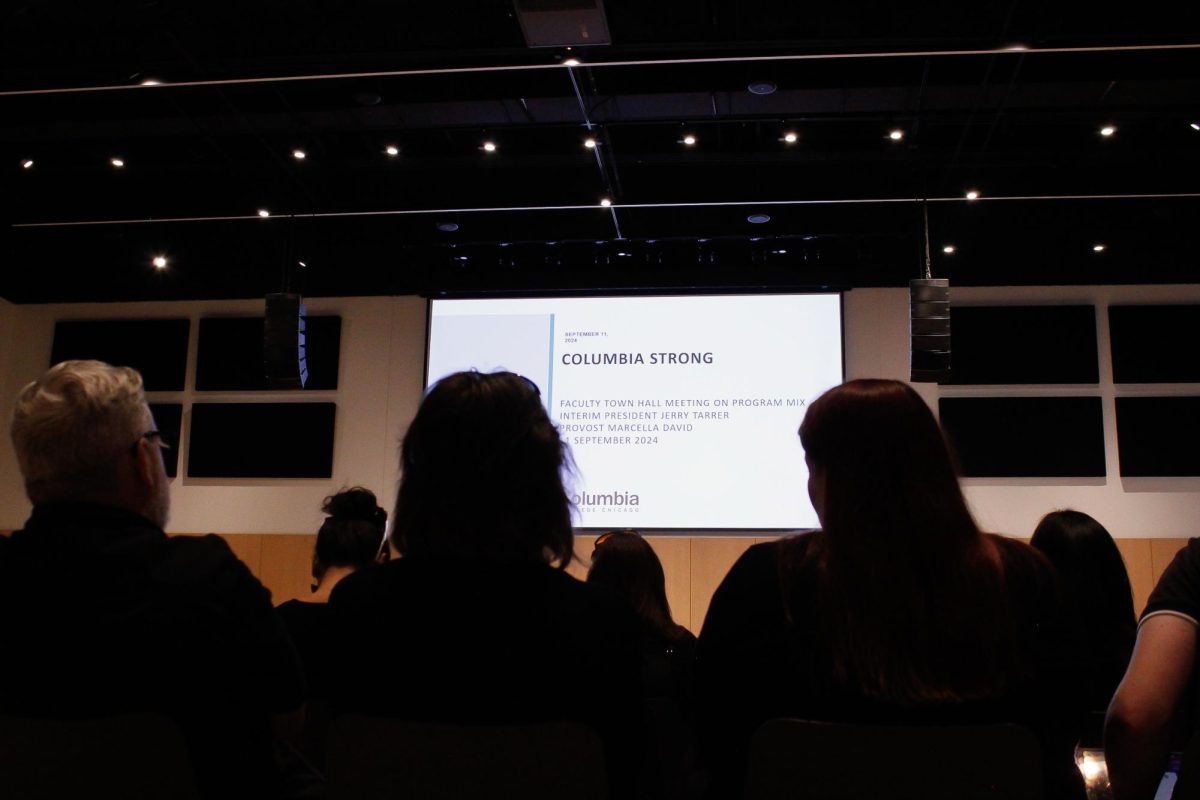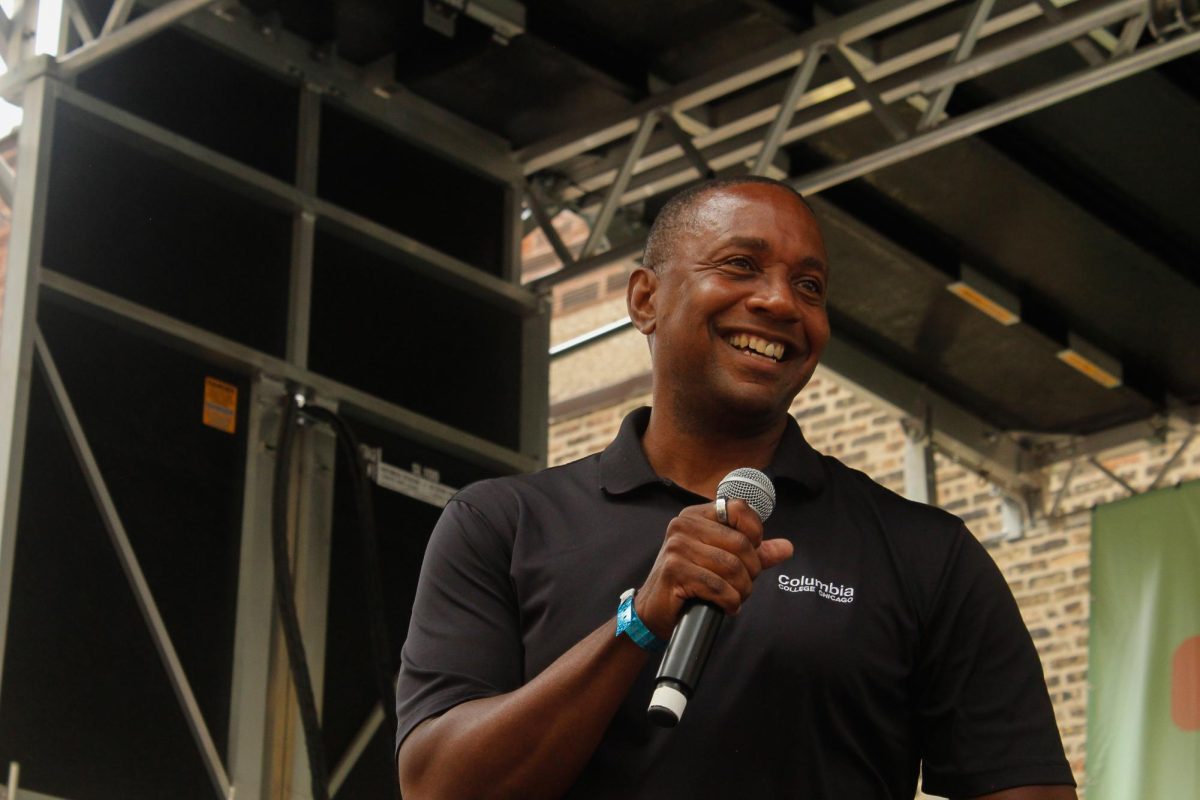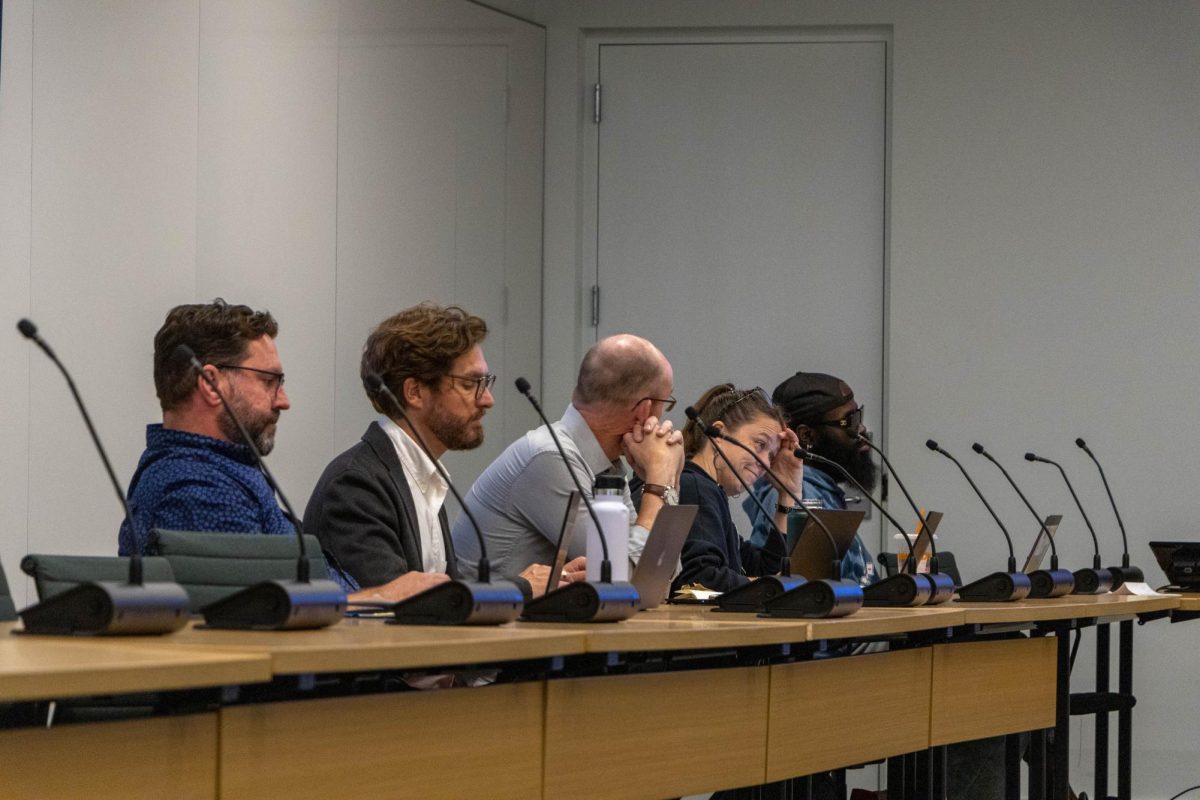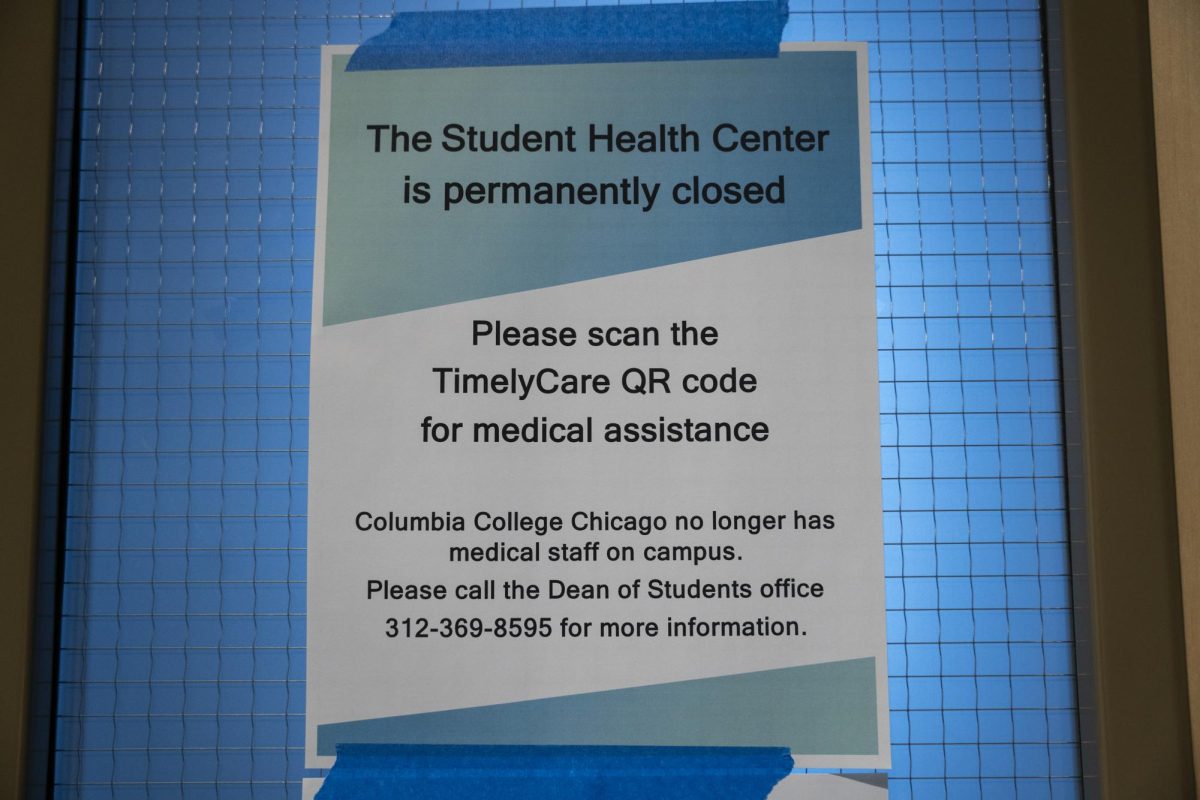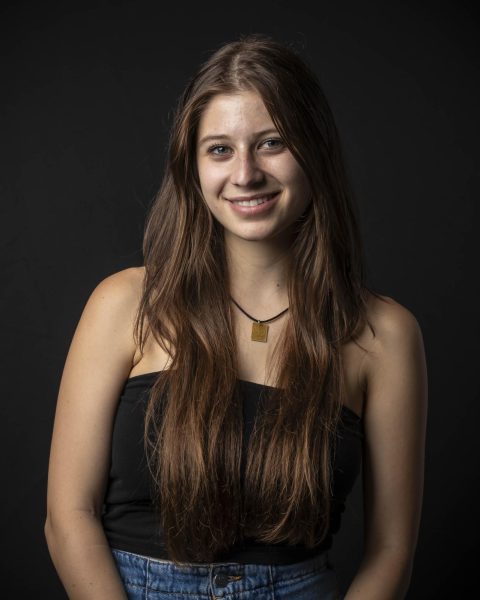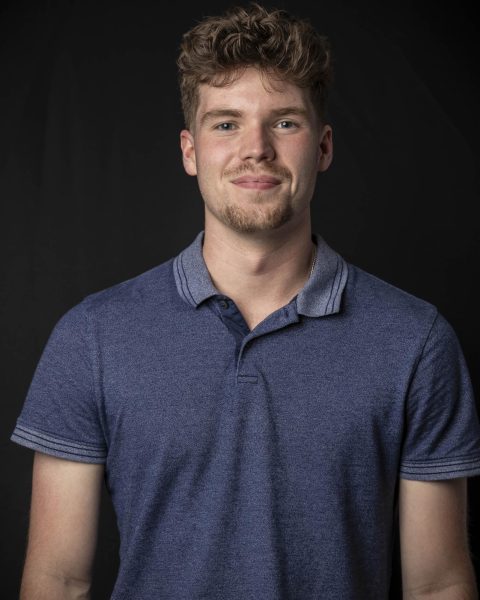Columbia’s part-time faculty union last went on strike in November 2017, walking out for two days with a 86.2% vote to strike.
Prior to that, in 2015, the union threatened to strike, and students with the “SaveColumbia” coalition marched on Michigan Avenue over the finalization of the administration’s strategic plan.
There was a walk-out and picket in the fall of 2018, said Lambrini Lukidis, associate vice president and strategic external relations. The union was authorized to strike in 2019 but they signed a contract with the college in May 2019, averting a strike.
Now, about four years after the last strike, voting for CFAC to strike is underway. It is set to close on Wednesday, Oct. 25. If the union does vote to strike, it could start the next day, although the vote technically only gives union leadership permission to strike. It does not mean the union would automatically strike.
The Chronicle reached out to CFAC President Diana Vallera and Publications Chair Delia Pless in multiple texts, phone calls and voicemails requesting comment on the status of the strike. Vallera and Pless did not respond by the time of publication.
In comparison: Columbia’s teachers are not the only ones threatening labor action.
In January 2023, the University of Illinois Chicago reached a tentative agreement with faculty and staff who were striking over increased pay, more funding for student services and job security. About 1,500 members of UIC’s United Faculty union hit the picket line.
Governors State University also had a strike in April 2023 over increased pay. Educators walked out after a bargaining session between the university and the union ended with no deal. They were the third state university to strike at the time.
What it means for Columbia students: A potential strike does not necessarily mean all classes would be affected. In 2017, part-time faculty hit the picket line in two different blocks of time over the two days they striked.
Also, only classes taught by striking part-time faculty members would be affected. In past strikes, not all union members participated and held classes anyway.
Full-time faculty are not part of the union and would hold class.
What else:
A college-wide email from Vice President and Provost Marcella David late on Wednesday, Oct. 25, outlined what students can expect from the college if the union does move to strike.
The email said campus buildings will remain open if the union does strike and that “students will not be held accountable for attendance or progress in courses that are not held due to the strike.”
David said the college does not currently know “if, when, or for how long” the union might strike. She said students should plan on attending class and if their instructor is not present, students should wait 15 minutes before leaving, in case the faculty is running late, as opposed to not coming because of a strike.
She added that some classes may be moved to Zoom and if an instructor is striking, a substitute instructor may step in.
David said the college does not tolerate harassment.
“Strikers and their supporters should be allowed to express themselves without fear of harassment, violence, or retaliation,” David said in the email. “Similarly, anyone refraining from strike-related activities should be free of harassment, violence, or retaliation.”
An email obtained by the Chronicle that was sent to students by a CFAC representative and part-time instructor warned that Canvas could be locked out during a potential strike. Lukidis said neither students nor faculty will be locked out of Canvas if the union does strike.
How it works: Columbia has both full-time and part-time faculty, although part-time faculty, with 581 members, makes up the majority. Full-time faculty are not unionized.
Full-time faculty hold the rank of assistant, associate or full professors, which is one way students can tell if their instructor is full or part-time. There also are faculty of instruction who are full-time but not on tenure track. They also hold ranks of assistant, associate or full. Faculty of instruction typically teach four courses per semester. Other full-time faculty teach three courses.
The union contract ranks part-time faculty by seniority, giving preference for classes to part-time faculty who have been at the college the longest.
Although all part-time faculty belong to the union and pay dues, there are two tiers. Voting members pay more and have an opportunity to participate in the strike authorization vote. Non-voting members pay less and are not sent a ballot.
Part-time faculty who teach during the strike period and choose to join the picket line, are not paid. Part-time faculty whose classes fall outside of the strike period or who choose to cross the picket line to teach are still paid.


